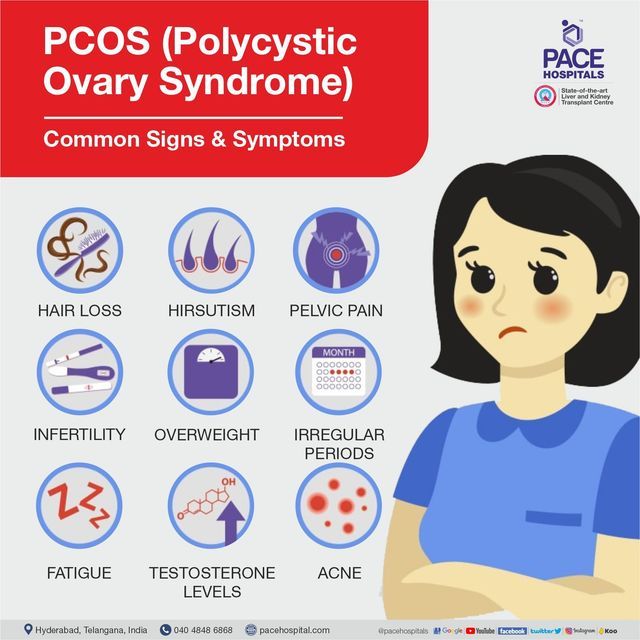Polycystic Ovary Syndrome, commonly known as PCOS, is a hormonal disorder that affects women of reproductive age. It is characterized by the presence of cysts on the ovaries, irregular menstrual cycles, and high levels of male hormones (androgens) in the body.
Symptoms of PCOS
Women with PCOS may experience a range of symptoms, including:
Irregular periods or no periods at all
Excessive hair growth on the face, chest, or back
Acne or oily skin
Weight gain or difficulty losing weight
Thinning hair or hair loss
Difficulty getting pregnant
Diagnosis and Treatment
Diagnosing PCOS typically involves a physical exam, blood tests to measure hormone levels, and an ultrasound to check for cysts on the ovaries. Once diagnosed, treatment options may include:
Birth control pills to regulate menstrual cycles
Anti-androgen medications to reduce symptoms like acne and excessive hair growth
Medications to induce ovulation for women trying to conceive
Lifestyle changes such as diet and exercise to manage weight and improve symptoms
Managing PCOS
Managing PCOS involves a combination of medical treatment and lifestyle changes. It is essential for women with PCOS to maintain a healthy weight through a balanced diet and regular exercise. This can help improve insulin resistance, which is often associated with PCOS and can lead to more severe health issues such as type 2 diabetes and heart disease.
Additionally, regular monitoring of symptoms and hormone levels with your healthcare provider is crucial for managing PCOS effectively. Keeping track of your menstrual cycles, weight, and any changes in symptoms can help you and your doctor adjust your treatment plan as needed.
Conclusion
While PCOS can present challenges for women, it is a manageable condition with the right treatment and lifestyle changes. By staying informed about your symptoms and working closely with your healthcare provider, you can effectively manage PCOS and improve your overall quality of life.


